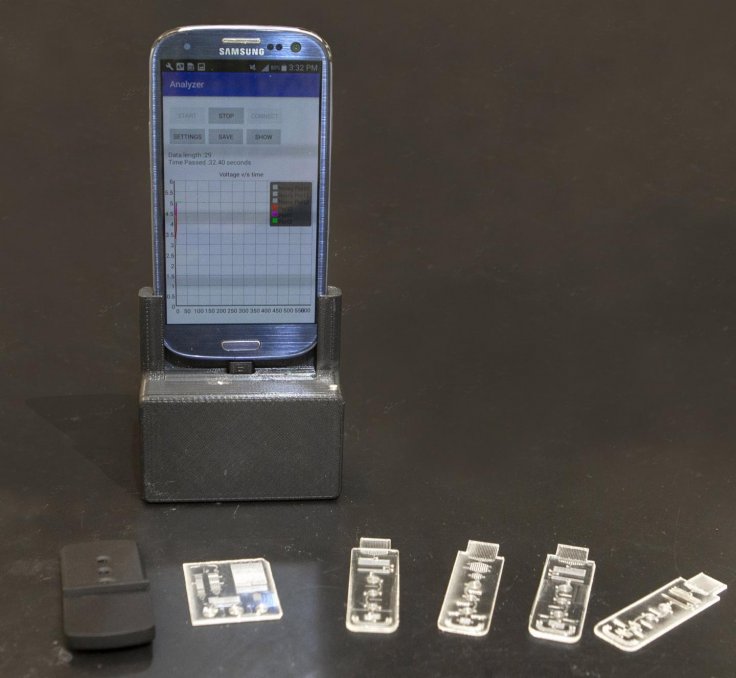A tiny portable lab that plugs into the smartphone was developed by the engineers from the Ohio's University of Cincinnati. It connects to the doctor's office through an app the UC developed which can help in diagnosing any infectious disease, including the novel coronavirus.
The lab can diagnose infectious diseases in a split second. It is the size of a credit card and the researchers said that it can help in finding diseases such as coronavirus, malaria, HIV, or Lyme disease and other countless health conditions including depression and anxiety.
The Doctoral student Sthitodhi Ghosh, the lead author in the study, said the biggest advancement in the device is in the novel design of its tiny channels that naturally draw the sample through the sensor arrays using capillary flow.
"The entire test takes place on the chip automatically. You don't have to do anything. This is the future of personal healthcare," Ghosh said.
How to use the device?

The patient simply puts a single-use plastic lab chip into his or her mouth then plugs that into a slot in the box to test the saliva.
The device automatically transmits results to the patient's doctor through a custom app the university engineers created for nearly instant results.
Professor Chong Ahn and his research team used the smartphone device to test for malaria. But the device could be used for smart point of care testing for countless chronic or infectious diseases or to measure hormones related to stress.
"Right now. it takes several hours or even days to diagnose in a lab, even when people are showing symptoms. The disease can spread," Ahn said in a paper published in the Nature journal Microsystems and Nanoengineering.
The research team created a novel lab chip that uses natural capillary action, the tendency for a liquid to adhere to a surface, to draw a sample down two channels called a "microchannel capillary flow assay".
One channel mixes the sample with freeze-dried detection antibodies. The other contains a freeze-dried luminescent material to read the results when the split samples combine again on three sensors.
Ahn said the device is accurate, simple to use and inexpensive.
"The performance is comparable to laboratory tests. The cost is cheaper. And it's user-friendly. We wanted to make it simple so anyone could use it without training or support."
While the device has applications for diagnosing or monitoring viruses or other diseases, Ahn said he sees potential in the field of mental health, where doctors already utilize smartphones to help track the wellness of patients.
(With agency inputs)








